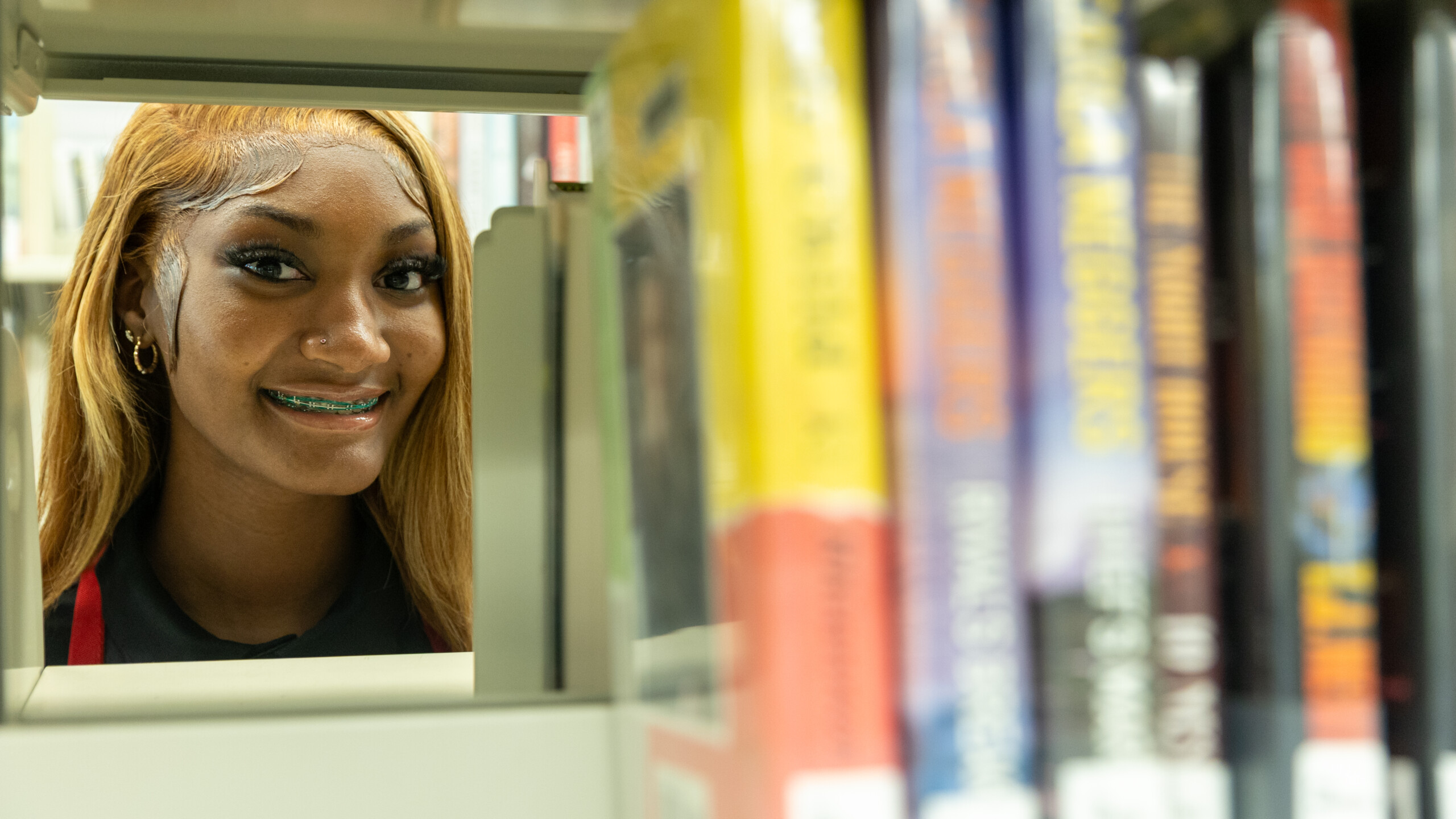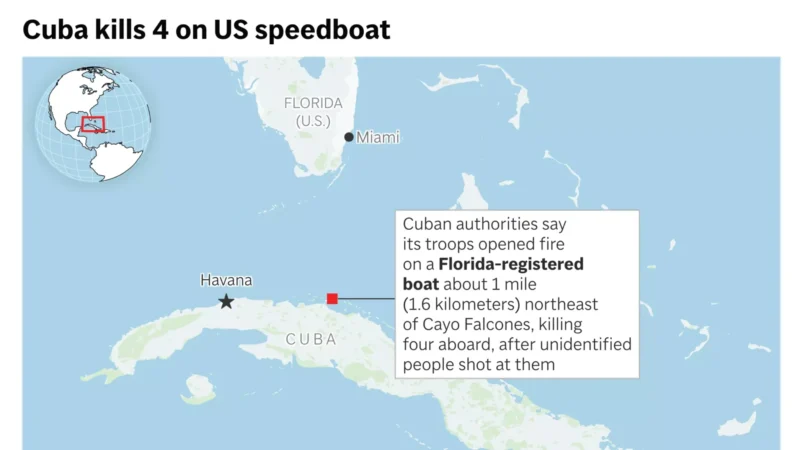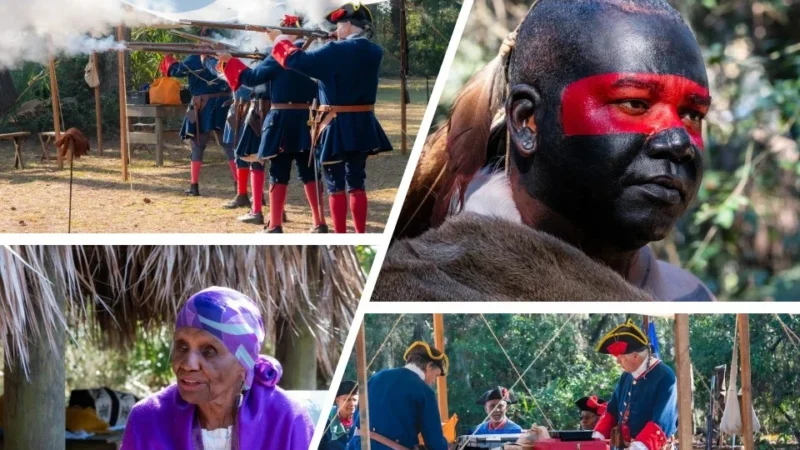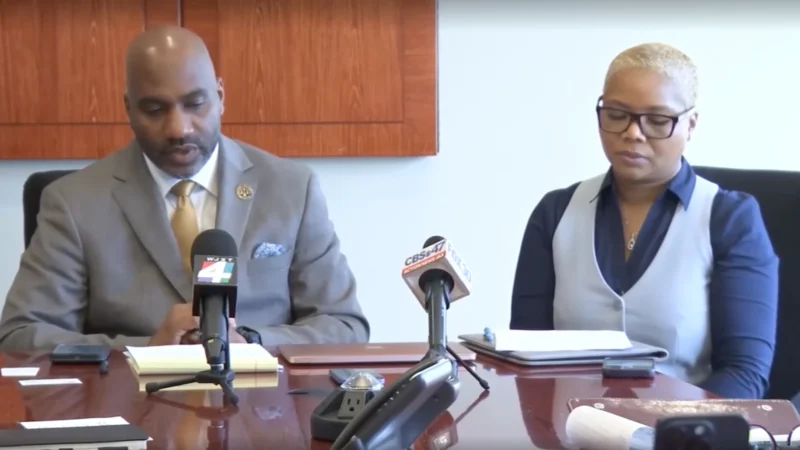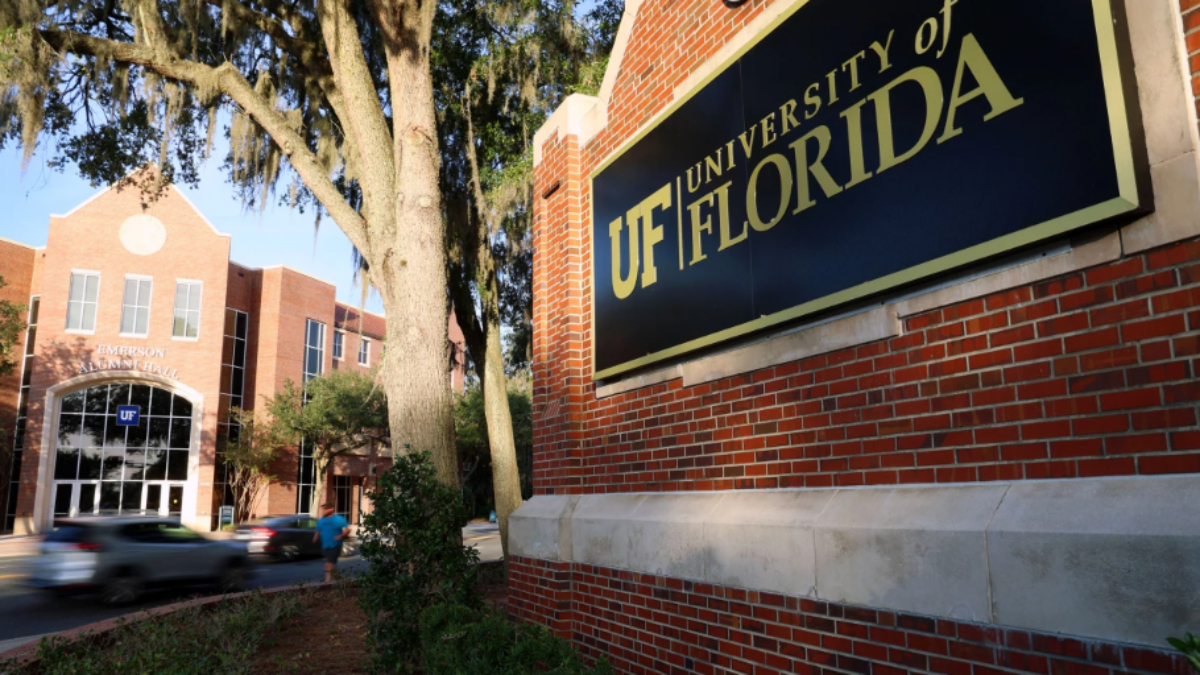Duval students have lagged behind other large, urban districts in the state in third grade reading proficiency for years.
Local educators, policymakers, corporate executives, nonprofit leaders and others have identified an additional focus on a child’s first five years as a potential answer. Detailed solutions to the literacy conundrum were discussed in a forum the Jacksonville Public Education Fund held Friday on the Southside.
Makayla Buchanan, a Northeast Florida native and current chief of staff for The Children’s Movement of Florida, says there is a correlation between the percentage of children who are prepared for kindergarten and third grade literacy scores.
In the 2024-25 academic year, 51% of Duval Schools’ third grade students were considered proficient readers by the Florida Department of Education. During the 2021-22 academic year — when the 2025 third grade students were in kindergarten — only 46% of Duval Schools students were deemed kindergarten ready.
In the coming weeks, thousands of Florida kindergarteners will be tested to determine how ready they were for school. Duval has lagged behind the statewide percentage of kindergarten-ready students in each of the last six years.
In 2024, only 39% of Duval kindergarteners were ready for school. That figure was below the statewide average of 43% and beneath the six other urban school districts in the state.
A Jacksonville Today analysis found 17 of the 28 Duval Schools that had less than 30% third grade literacy proficiency also had less than 30% kindergarten readiness in 2024. Those schools overwhelmingly serve under-resourced students in Arlington, the Westside and Northwest Jacksonville.
The better a child is prepared once they enter school, Buchanan says, the more they will achieve.
“Those birth to five years are the most important,” Buchanan tells Jacksonville Today. “We talk about achievement gaps with students — students who are performing at grade level proficiency or not. We can see those gaps in oral language development before children are 2. Expanding access to quality early learning experiences — and whatever that parent chooses — are so vital to getting us where we want to be at 100% kindergarten readiness by 2030.”
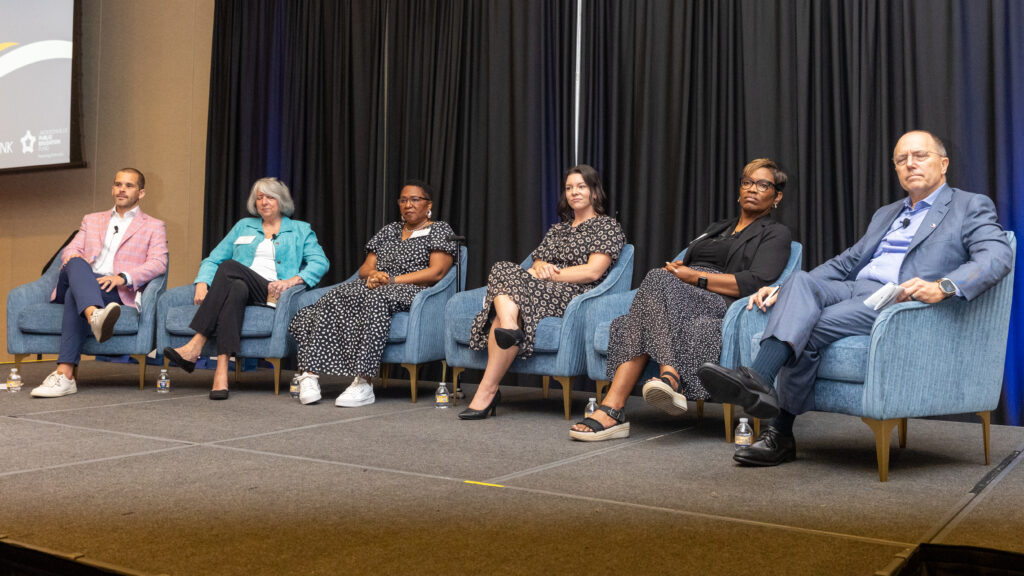
Solution suggestions
Buchanan suggested converting empty classrooms and schools into early child care spaces.
Former Duval County Superintendent Diana Greene, currently CEO of the Children’s Literacy Initiative, encouraged additional professional development opportunities for early child care providers, in order to increase staff retention.
Sonya McSwain, the Duval Schools director of early childhood education, implored state lawmakers to increase the per-student funding for Voluntary Prekindergarten — or VPK — to the same rate as K-12 students. Current per-student funding for VPK students is $3,029, compared to $9,130 for K-12 students.
University of Florida Literacy Institute Director Holly Lane implored investment into the science of learning at the preschool level. Lane says a similar investment has paid dividends at the elementary level. Current Duval Schools Superintendent Christopher Bernier recently cited the literacy institute as one reason Duval’s third grade literacy in 2025 was its highest in four years.
Investment in literacy
Greene says early childhood education needs multifaceted investment from federal, state and local governments. It also needs investment from the private sector.
“It has to be funded like K-12,” Greene says. “Our early learning coalitions need more financial support. … Where the city can pick up is supporting the families.”
The Florida Legislature also has introduced solutions.
In 2024, state lawmakers unanimously passed a bill that would, among other things, allow employers to receive tax write-offs for payments made to child care facilities on an employee’s behalf. This is the first full academic year where the bill is in effect.
In Duval County, there is collective understanding from educators, executives and academics that investment is not exclusively monetary.
PNC Bank North Florida Regional President Chris Kalin says he is thrilled to see so many entities band together to support early literacy. Nationally, the bank has invested more than $250 million in its early learning initiative, PNC Grow Up Great, since 2004.
“(The) discussion made it clear that when we invest in early learning and literacy, we are investing in the future of our workforce, our neighborhoods, and our city,” Kalin said in a statement. “The community is at a pivotal moment, with a clear opportunity to change the trajectory for Jacksonville’s children and families in a way that will be felt for generations, and I feel incredibly positive about the impact we’re positioned to make moving forward.”
Bernier touts his appointment to the Early Learning Coalition of Duval board as one way to strengthen the connection between the school district and early learning providers.
The Early Learning Coalition of Duval works with more than 500 child care providers and 17,000 children on an annual basis. Most of the children it serves are in Arlington and Northwest Jacksonville.
Funding reductions from the U.S. Department of Education meant the Early Learning Coalition of Duval was forced to shift its priorities this academic year.
“ZIP codes and poverty often determine the success of a child’s academic success, particularly without targeted investments into remediation and intervention,” Buchanan says.
Changing childcare landscape
Teri DeLucca says the pandemic created a dearth of early childhood educators that has yet to be filled. DeLucca is the founder and CEO of Impact Early Education, a Jacksonville-based company that trains early childhood educators.
Earlier this year, DeLucca told Jacksonville Today that elementary schoolteachers left the profession during the pandemic, which created vacancies that were filled by early childhood educators.
Since COVID the turnover of early childhood education has tripled. It makes it more challenging to establish school cultures.
“On the child level what we are seeing is since COVID it’s very different kids who are in the classroom,” DeLucca said during an interview in April. “There is an increase in learning differences and behaviors. There is not as much parallel play. They are playing different; they are talking different. It’s not something we can’t handle. It requires a different set of teaching skills.”
DeLucca says investment in locally owned child care centers, as well as additional training for teachers who work in early childhood education, will better prepare students for kindergarten.
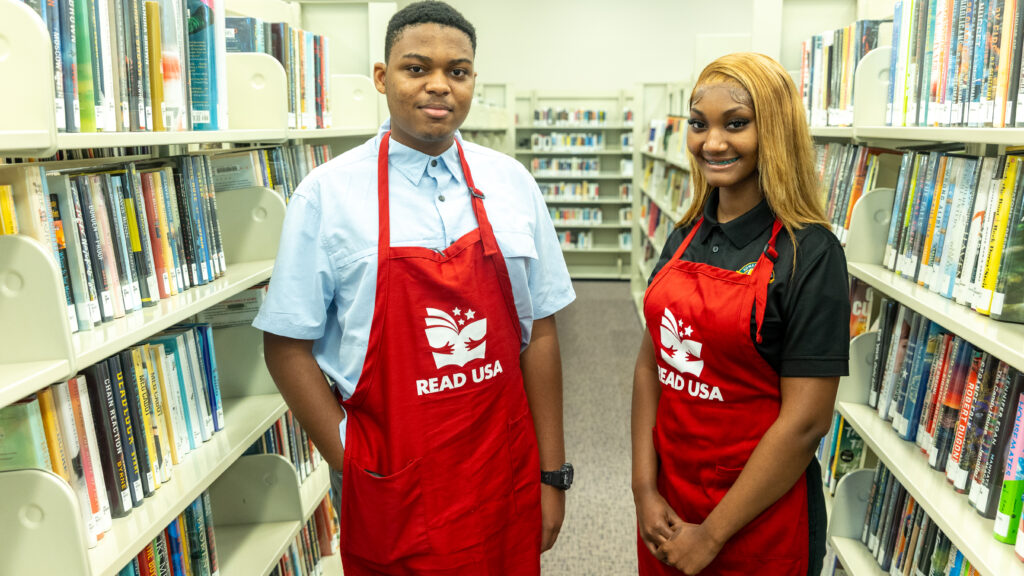
Reading can be fun
Tristan Myrthil-Sime and Taylor Brown say adults often forget that one way to motivate a child toward literacy is to allow them to select the material they consume outside the classroom.
Taylor is a junior at Ed White High School and president of its Beta Club. Tristan is a senior at Paxon School of Advanced Studies who sports a 4.0 weighted grade point average.
Taylor and Tristan spend at least two days a week as reading tutors for elementary-aged students through READ USA’s tutoring program. The tutoring initiative has been championed by the Duval County School Board and multiple superintendents.
READ USA is currently hiring tutors to work with second, third and fourth-grade students who are not yet proficient in reading. The non-profit expects to hire two dozen high school and college-aged tutors this fall.
“There’s only one word that would explain what every student needs: interest,” Tristan says. “They need interest in school. I will use (myself) as an example. When you see your schoolwork, your books as work that you have to get done, it stays as work. Some students have told me that they might have taken a class. Then, if the summer passes, and a teacher asked them a question about what they did in the past, they would not remember a thing. All they did was memorize everything. They made sure they had the knowledge. Then, once they were done, they threw it away.”
Whether its emerging readers, elementary students or high school seniors, Tristan says finding topics that can engage them will spur more than literacy.
“When you have an interest in your schoolwork, when you have an interest in whatever homework you have, it doesn’t feel like homework anymore,” Tristan says. “Instead, it’s learning. It may even be fun for some. But, you keep that knowledge and it passes on.”



